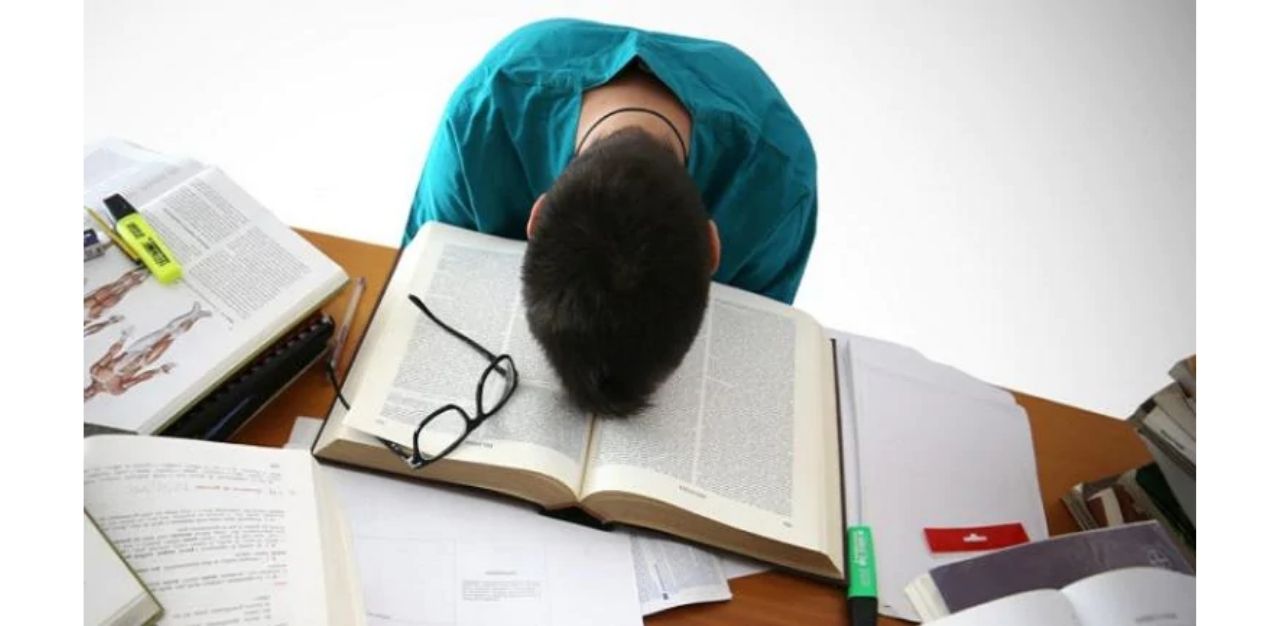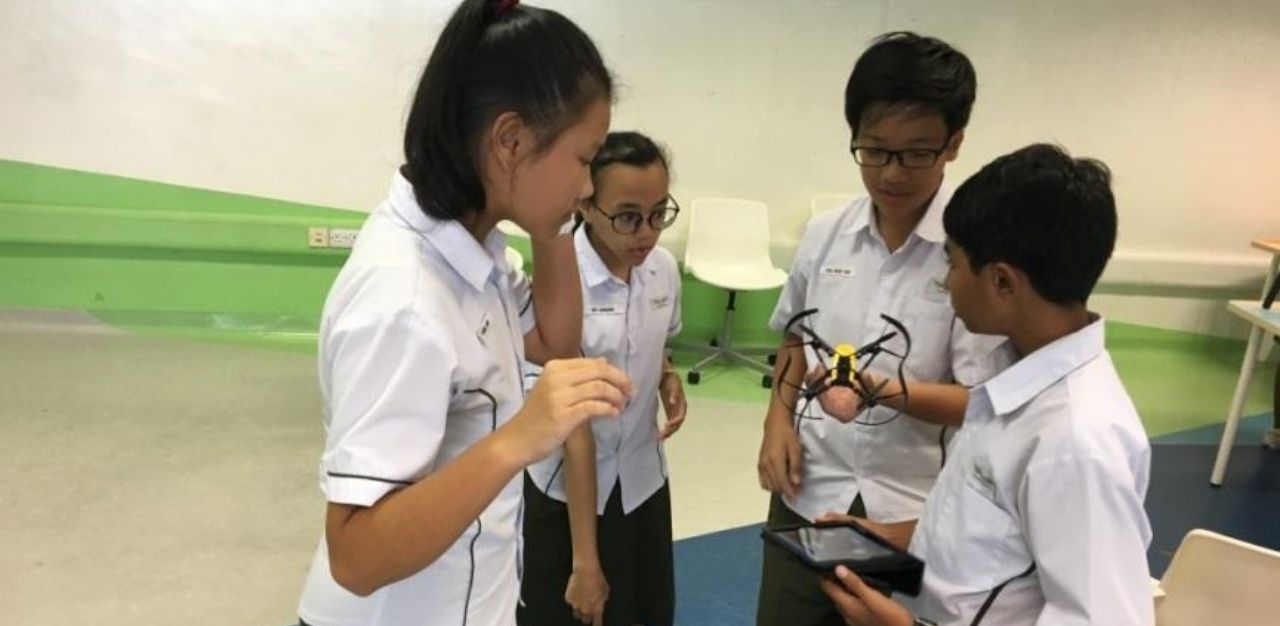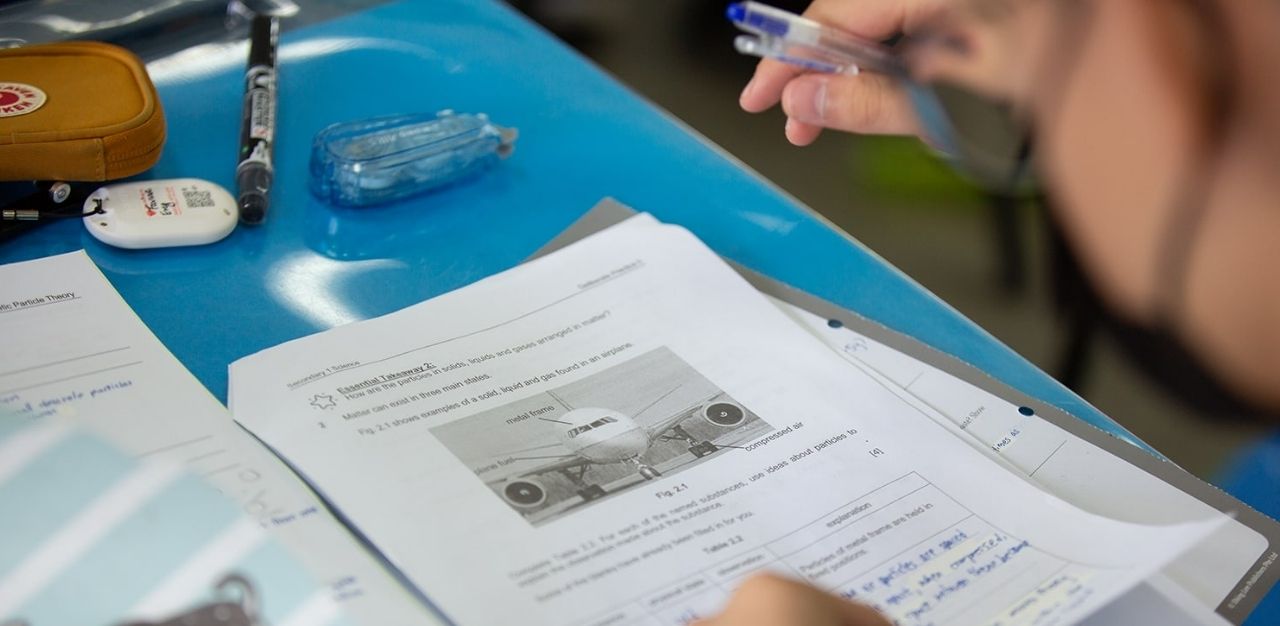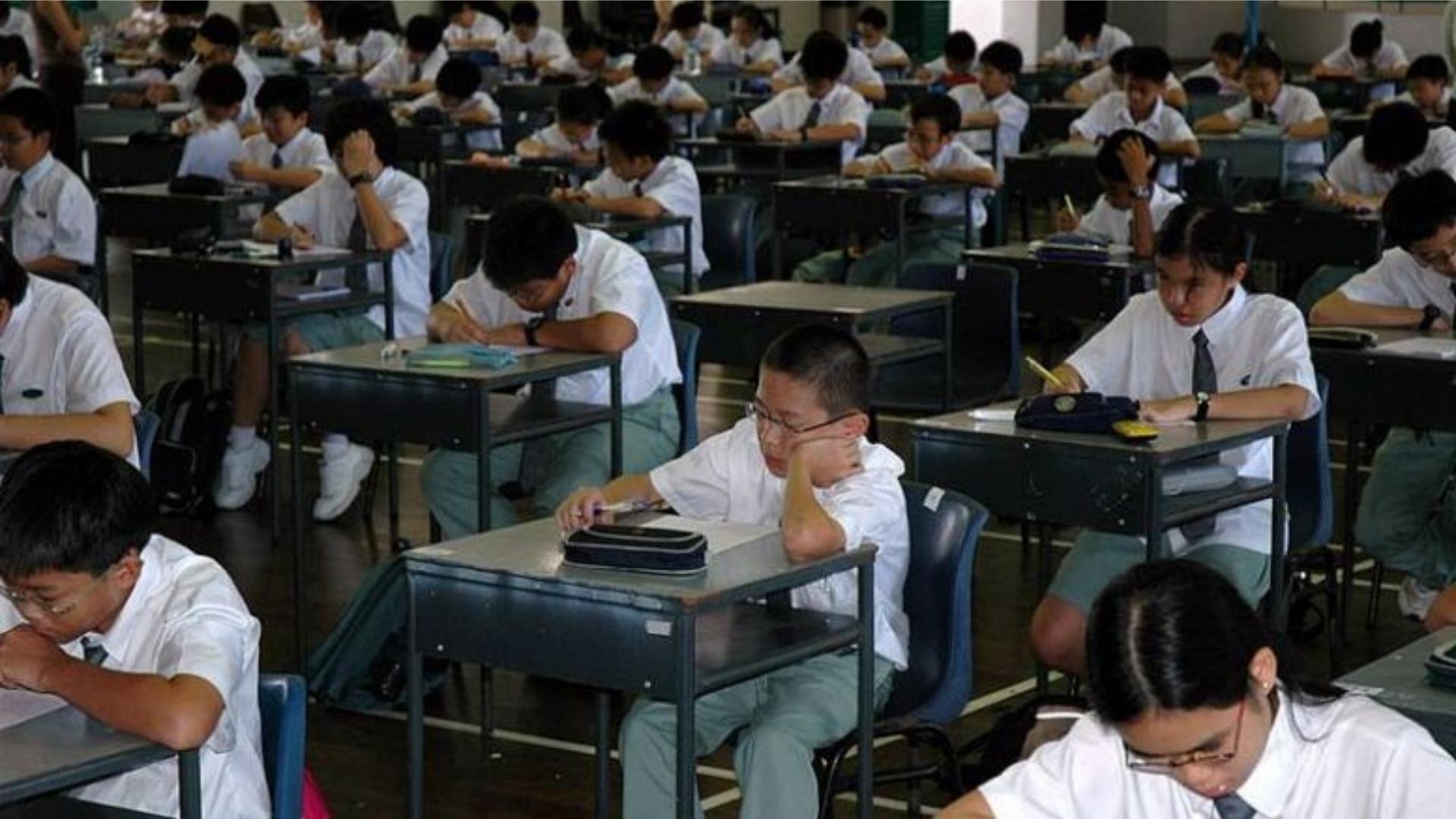Parents are constantly concerned about the Singapore education system putting undue stress on their children. So, anyone would think that on March 7, when the Minister for Education Chan Chun Seng announced that all primary and secondary schools will do away with the mid-year examinations by 2023, they would rejoice.
While some did, others became worried that their children may not be able to grasp the concepts, and not able to cope with the sudden raising of stakes of the year-end examinations.
Many went online to make their anxiety known.
Going to school to rediscover the joy of learning, not just prepare for exams
By getting rid of the mid-year examinations, students have more time to participate in self-directed learning and “develop 21st century competencies”, Mr Chan told the House during the debate on his ministry’s spending. He said MOE saw a “positive impact” from the removal of mid-year exams for some levels.
Since 2019, schools have been doing away with the mid-year exams, removing a rite of passage for those growing up in Singapore. It began with the complete removal of exams and graded assessments for Primary 1, and Primary 2 in 2019.
The mid-year examinations for Secondary 1 students were also removed in the same year, followed by Primary 3, Primary 5, and Secondary 3 students in 2021.
The latest move is part of MOE’s emphasis that learning should be focused on students’ individual journeys and that it is not a competition.
A senior education research scientist specialising in assessment practices and assessment literacy at the Centre for Research in Pedagogy and Practice at National Institute of Education (NIE) Wong Hwei Ming says there are both positives and negatives of removing mid-year examinations.
She says examinations alone can be too narrow in focus and only test a limited range of skills and knowledge. “There may be a tendency for some students to cram and memorise things without understanding (them) properly for the examination and then forget it all a week later. Thus, examinations alone may not be an accurate reflection of the students’ knowledge and ability,” she says, adding that there are other ways to assess students.

Examinations can also be a source of stress, anxiety and pressure for some students, which can lead to various health issues as well as create disinterest in studies, so the removal of the mid-year examinations will help to reduce the unnecessary stress and anxiety, Dr Wong says.
She also feels that examinations may be the catalyst to the breakdown in friendships for some students as it encourages “unhealthy competition and comparison”. With the removal of the mid-year examinations, students are able to “focus better on learning as a community and be resources for one another”.
“Not doing well in examinations may also lead to discouragement, low confidence and self-esteem for some students. Through other forms of assessment, students can develop their interest and confidence in their studies and be motivated to learn,” she says.

However, Dr Wong agrees that “there are also negatives about removing mid-year examinations”.
“Examinations are a quantifiable way of tracking progress that can help identify strengths or areas for improvement for the students. Students are therefore encouraged to consolidate their learning, do more to learn and broaden their knowledge. Without a mid-point check-in, some students may not be driven to learn or know their level of performance and knowledge. It may also be difficult to determine if or when they need additional support,” she says.
Although stress and anxiety are bad, having to experience some of it due to examinations “may be good as they are part of life”. “Examinations can help students learn to cope with stress and build up their mentality and resilience. … Without the mid-year examinations, some students may also not be mentally prepared and may not be adequately prepared for the end-of-year examinations,” she adds.
Dr Wong feels it is important to understand that assessment in education occurs for different purposes. Examinations, as a form of Assessment of Learning (AoL), serve particular purposes such as placement because they happen at specific timepoints such as middle of the year, at the end of year. Based on the results, students are placed in appropriate classes, resources can be better allocated and some students may be given additional support for their learning.
Besides scrapping the mid-year examinations, all primary and secondary schools have also stopped indicating students’ position in class, class and level mean, minimum and maximum marks, pass or fail grade for end-of-year results on their report books.
To recognise other forms of merit beyond academic grades, MOE will be increasing the number of students that can be admitted in government and government-aided junior colleges through the Direct School Admission (DSA) scheme from this year onwards.
The DSA scheme allows students to apply for schools of their choice on the basis of their talents in sports, Co-curricular activities (CCAs) and other academic areas that are not demonstrated by the mainstream examinations.
Students, parents express mixed feelings over the lifting of mid-year exams
While some students, parents, and even teachers rejoice over the shift in the educational policy, others are not so sure if the removal of exams will result in positive changes.
Eleven-year-old Javier Tan could not be happier as no more mid-year exams means there is no need to spend long hours doing practices with “my mummy looking at me sternly”.
“I like to watch YouTube and play games on my iPad, but mummy will not let me play when the exams are coming,” says the Primary 6 pupil.
Javier’s mother Joyce Lim, admits that she heaved a sigh of relief when she heard about the news.
“Javier is very playful and every time I have to sit down with him to prepare him for his tests and exams. It is a torture for the both of us. I lose my temper sometimes and he is so stressed that he ends up crying. Over time I noticed that he has become more scared of me, and it was starting to strain our mother-son relationship”, the mother of two says.
Madam Lim adds, “It is a struggle sometimes to have to balance between wanting your child to do well in school and also wanting to see him happy and enjoying his childhood. I understand that exams are useful to gauge how Javier is doing but removing some of them does make it easier for me as a parent as I do not have to play the ‘bad guy’ so often”.
On the other hand, secondary 3 student Austin Chia feels that “removing the mid-year exams eliminates a useful way for students to measure their own knowledge of the taught syllabus before the end-of-year exams, as a less-than-desirable grade serves as an early notice as to what content they lack understanding in, allowing them to refine that content in the latter half of the year instead of receiving an unwelcome surprise at the year end”.
“Therefore, the mid-year exams are a good ‘medium’ to scare the underperforming students to buck up and reduce the chance of them ending up with a failing final score at the end of the year” he says.
“Furthermore, with the mid-year exams, students only need to focus on half the syllabus during the middle of the year, while they can focus on the latter half for the end of the year. This helps students to optimally structure their revision schedule for each half of the syllabus,” says the 14-year-old, adding that “students who achieved a good score for their first semestral assessments have ‘a good start’ and it reduces the amount of stress as the stakes of their final exams would not be so great”.
Austin, who is from one of Singapore’s independent schools adds, “I have talked to my parents about it and they both think it is a bad idea too as they do not know if any intervention is needed until it is too late. The move just creates a major blind spot for students, parents, and teachers, just to avoid benchmarking students”.
However, Dr Wong feels that “there are other forms of assessments such as formative assessment or also known as Assessment for Learning (AfL) where teachers can monitor and provide feedback to improve students’ learning”.

“AfL is an on-going process during learning and it involves both the teacher and students. Through AfL, teachers and students can give and receive feedback about the students’ learning,” she says.
For example, teachers can provide students with “actionable and specific feedback and adjust their teaching in relation to students’ learning while students are encouraged to take an active role in their learning, to become self-directed and develop critical 21st century competencies and skills which extend beyond schooling”.
Local research studies on self-assessment on AfL, has shown that primary school students were able to take on more ownership of their learning as well as developing skills such as independent learning, communication, and decision-making, adds Dr Wong, who is also a registered educational psychologist in Singapore. She has been providing counselling at a local primary school for more than 18 years.
Miss Madeline Chew, a secondary 1 student at a neighbourhood school in Bukit Merah, feels that “the lack of any pressure at all is not as good as it sounds”. “If I know that I am doing well, it will give me a confidence boost and the assurance that my learning and revision methods are suitable for me. But, without any information of how I am doing in relation to my schoolmates, then I do not know whether I need to make a slight tweak or a major overhaul to my methods,” she says.
On the other hand, Madeline’ mother Susan Chew is relieved that they will not have to spend extra money on tuition.
“Every time, whenever it is about two to three months before an exam, her tutors would have to come for extra revisions so that she will perform better. All these classes add up to a significant amount and take a toll on our household expenses. The situation has been bad since Covid-19, especially with the recent rise in prices from electricity to groceries”, said Mrs Chew.
To allay the concerns raised by students and parents, Dr Wong said that they should “make an effort to better understand the different kinds of assessment used in schools and support teachers in their efforts”.
Student self-assessment can provide rich information on the learning progress of the children in forms of comments that will help children to understand about their strengths, weaknesses and the steps that they can take to improve their learning. It encourages the children to take ownership of their own learning.
It also builds and develops important life skills in children, such as critical thinking skills, self-directedness, develop responsibility, self-awareness, decision-making and self-management skills.
“As parents, we need to rethink and change our mindset of academic excellence and embrace a broader definition of success. Asking our children after an exam ‘How did you do on the exam’ implies that grades are more important than anything else. We need to show our children that we love and support them for who they are, not because of their grades. We should also be mindful that we are not transferring our own experiences of schooling to our children,” Dr Wong says.

“Many parents do not see what happens during class and tend to believe that assessment remains unchanged since they themselves were students. The way they then instruct their child at home may differ or even conflict with what teachers are trying to do in class,” she adds.
A common belief is when a child comes home without any homework, the parents think the teacher is not performing his or her duty, but the teacher is actually encouraging self-directed learning rather than assigning homework, Dr Wong says.
The changing role of teachers
Ms Annie Li, a former teacher, recalls having to spend many hours setting examination papers, preparing students for assessments, and subsequently marking the scripts.
“Many precious hours were spent from the start to the end of the process, and the time would have been much better spent planning and carrying out lessons that the students find more interactive and interesting”, says the 52-year-old.
Ms Li adds, “Moreover, the current generation of students is completely different from previous generations, having been exposed to technology since birth. They learn differently from their parents and grandparents, and it is high time for assessment methods to keep up with the times”.
But the Chinese language teacher concedes that “there is still a need for teachers to assess their students’ learning progress”. “That can take the form of bite-sized activities that allows the teachers to gauge their learners’ performance without putting undue stress on them and their parents,” she says.
Dr Wong, who has previously taught at a primary school and worked at the MOE HQ as an educational psychologist, concurs that “the removal of the mid-year examinations in schools will free up crucial time for schools and teachers to design and facilitate meaningful assessments to engage students.
In fact, many teachers are already using AfL within their classrooms. As such, I personally do not think that workload of teacher will increase tremendously.
Teachers can also learn new ways to design powerful and meaningful assessments to develop their students’ intrinsic motivation to learn, and reduce the over-emphasis on academic results.”
Join the conversations on TheHomeGround Asia’s Facebook and Instagram, and get the latest updates via Telegram.





























